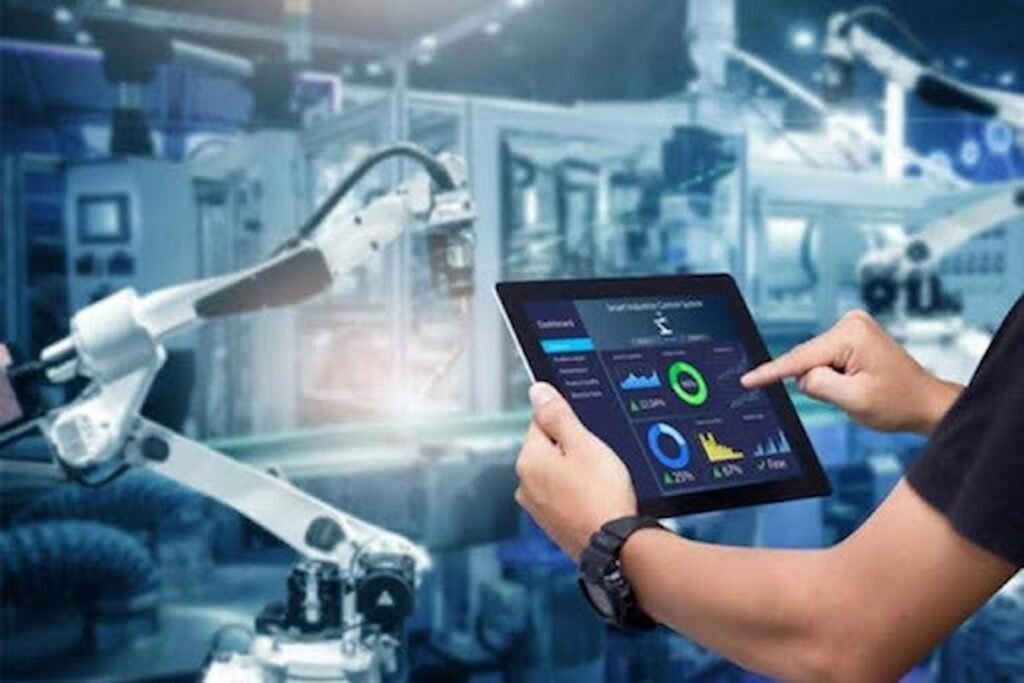Selecting the right supplier is one of the most crucial decisions for businesses relying on automation. The quality, reliability, and efficiency of your production line depend heavily on the parts you source. But with so many options, how do you ensure long-term success? This article explores the key factors to consider when choosing industrial automation parts suppliers, offering practical guidance that will help you minimise risks, optimise performance, and build stronger supply chain partnerships.
The world of industrial automation is fast-paced and highly competitive. Companies depend on reliable components to keep operations running smoothly. Choosing the right Industrial Automation Parts Suppliers can make the difference between seamless production and costly downtime. This decision requires more than just comparing prices—it’s about evaluating quality, service, and long-term value.
Below, we break down the most important factors every business should consider when selecting suppliers.
Quality of Parts
The foundation of any good supplier relationship is quality. Poor-quality automation parts lead to frequent breakdowns, higher maintenance costs, and decreased productivity. When evaluating suppliers, check:
- Compliance with international quality standards (ISO, CE, RoHS).
- Material durability and testing certifications.
- Customer reviews and testimonials about part reliability.
Quality should always outweigh cost in your final decision.
Supplier Reliability
A supplier must be consistent in delivering what they promise. Reliability is measured not only in product quality but also in:
- On-time deliveries: Delays can halt production and lead to financial losses.
- Inventory management: Strong suppliers maintain adequate stock to meet demand.
- Responsiveness: They should address queries, replacements, or technical issues quickly.
Reliable suppliers reduce uncertainty and strengthen your supply chain.
Technical Expertise
Industrial automation parts suppliers systems are complex. You need suppliers who understand the technology behind the parts they sell. Technical expertise ensures:
- Correct recommendations for compatible parts.
- Assistance with installation or troubleshooting.
- Guidance on upgrades and industry innovations.
Suppliers with dedicated technical teams provide added value that goes beyond just selling components.
Range of Products
A broad catalogue of products indicates supplier capability. Working with a supplier offering multiple brands, part types, and modern alternatives allows flexibility. It prevents you from dealing with various vendors and simplifies procurement.
Look for suppliers offering:
- Sensors, drives, motors, and controllers.
- Both branded and cost-effective alternatives.
- Emerging solutions like IoT-compatible devices.
This variety gives you a choice without compromising on standards.
Pricing and Value
Cost is always a consideration, but the cheapest option may not be the best. Instead, evaluate overall value. This includes:
- Product lifespan and maintenance needs.
- Warranty coverage.
- Volume discounts for long-term partnerships.
Value-based pricing ensures you save money in the long run rather than cutting corners up front.
After-Sales Support
Strong after-sales service is a hallmark of a dependable supplier. Problems may arise even with top-quality products, so support matters.
Evaluate suppliers on:
- Availability of replacement parts.
- Warranty terms and repair options.
- Customer service accessibility (24/7 helplines, online portals).
Reliable after-sales support keeps operations running smoothly without extended downtime.
Financial Stability of Supplier
A financially unstable supplier poses risks to your supply chain. If they face bankruptcy or cash-flow issues, your business could suffer. Assess their stability by:
- Reviewing years in operation.
- Checking credit history where possible.
- Considering market reputation.
Financially secure suppliers are more likely to maintain consistent operations and investments in innovation.
Geographic Location
Location impacts lead times and shipping costs. Local suppliers may provide faster delivery and easier communication. However, global suppliers often offer more variety. Consider:
- Proximity to operations: Quicker logistics.
- Customs and tariffs: International shipping may increase costs.
- Emergency needs: Local suppliers can respond rapidly.
Finding the right balance between local convenience and global variety is essential.
Compliance with Regulations
Automation parts often need to comply with industry-specific regulations. Suppliers should provide complete documentation, including safety certifications and regulatory approvals. Non-compliance could lead to legal issues and penalties.
Always request product compliance details to ensure your operations meet legal and industry standards.
Reputation and References
Reputation is one of the strongest indicators of supplier performance. Before committing, research:
- Customer testimonials.
- Case studies.
- References from existing clients.
A supplier with a proven track record builds confidence that they can deliver consistently.
Innovation and Adaptability
Industrial automation parts suppliers evolve quickly. A good supplier should keep pace with industry trends and emerging technologies. Choose suppliers who:
- Offer the latest product lines.
- Provide insights on industry upgrades.
- Invest in research and development.
Forward-thinking suppliers ensure your business stays competitive.
Risk Management in Supplier Selection
No supply chain is risk-free, but you can reduce risks with careful planning. Consider:
- Diversification: Avoid relying on a single supplier for all needs.
- Backup suppliers: Maintain alternatives for critical parts.
- Geopolitical risks: Assess risks linked to international suppliers.
A strong risk management strategy safeguards your business from unexpected disruptions.
Continuous Supplier Evaluation
Choosing a supplier isn’t the end—it’s the beginning of an ongoing relationship. Regular evaluations help maintain standards. Track indicators such as:
- On-time delivery performance.
- Defect ratios.
- Responsiveness to urgent needs.
Review these benchmarks quarterly or annually to ensure your supplier remains aligned with your business goals.
Building Long-Term Partnerships
The best outcomes often come from long-term collaboration. When suppliers understand your operations, they can provide better recommendations and flexible support. Strong relationships foster trust, streamline negotiations, and create opportunities for cost savings through loyalty discounts.
Final Thoughts
Selecting the right industrial automation parts supplier is not a decision to rush. It requires careful evaluation of quality, reliability, expertise, and long-term value. By prioritising these factors, businesses can build strong supplier relationships that support growth and resilience.
The right supplier does more than deliver parts—they become a trusted partner in your success.

